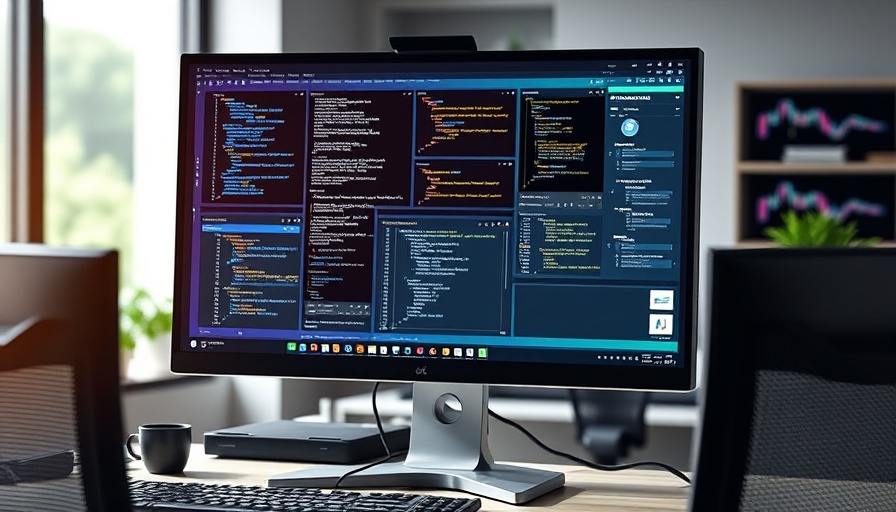
Microsoft's Strategic Shift: Emphasizing Claude 4 Over OpenAI
In a striking move, Microsoft has set its sights on Anthropic's Claude 4 AI, signaling a shift in its strategy in the artificial intelligence landscape. This change is evident as the tech giant begins favoring Claude 4 over its long-time ally, OpenAI, in key tools like Visual Studio Code. This transition illustrates the fluid nature of partnerships in AI, driven by performance metrics and emerging capabilities that underpin the future of coding and productivity tools.
Performance Benchmarks: The Rise of Claude 4
Despite a remarkable $13 billion investment in OpenAI, internal reports reveal that Claude 4 has demonstrated superior performance in various coding tasks. Developers within Microsoft are now being encouraged to adopt Claude 4 due to its efficiency in code generation and error debugging. According to recent information, Claude's reliability outpaces that of OpenAI's models, prompting Microsoft to integrate Claude into more of its tools, including GitHub Copilot. This decision isn't dismissive of OpenAI; rather, it's a pragmatic response to tangible performance advantages.
The Dynamics of AI Partnerships: What It Means for Developers
Microsoft's pivot towards Anthropic raises questions about the longstanding partnership with OpenAI. With Anthropic emerging as a key player in the AI market, some industry experts speculate that diversifying dependencies might enhance Microsoft's resilience against volatility in AI capabilities. As these dynamics shift, developers may benefit from access to more robust tools tailored to enhance productivity. Features like the automatic model selection defaulting to Claude Sonnet 4 in Visual Studio indicate a significant change that directly impacts developers' day-to-day operations.
Implications for the AI Ecosystem: A Changing Landscape
The integration of Claude 4 across Microsoft’s tools is more than just a partnership shift—it's a strategic adaptation within an evolving AI ecosystem. As organizations continue to seek reliable and efficient AI solutions, the importance of safety-aligned models becomes paramount. This is especially relevant given Anthropic's commitment to producing AI that aligns with user safety and ethical considerations. As these models gain traction, we could see a broader push toward sustainable AI practices across industries.
Future Trends: A Shift Toward Diversification
Industry analysts contend that Microsoft's strategy signifies a potential trend toward diversification in AI solutions. Companies like Amazon are also developing their AI frameworks, which may further change the competitive landscape. As Microsoft incorporates Claude 4 into its workflows, it sets a precedent for other tech giants to reassess their partnerships and adoption strategies with AI models. The trajectory of AI development could lead towards a future where multi-vendor strategies become standard practice.
Understanding the Impacts: A Call for Adaptation
For developers and companies leveraging AI technology, staying informed about these changes is crucial. The landscape is rapidly adapting, and those who responsibly integrate frameworks like Claude 4 into their operations can expect to see improvements in productivity and efficiency. Understanding how these AI tools can serve their specific needs allows organizations to capitalize on technological advancements while mitigating risks.
 Add Row
Add Row  Add
Add 




Write A Comment